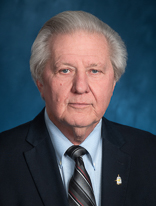Workers Want a Green Economy, Not a Black Environment

To justify withdrawing from the Paris climate change accord, President Trump said during his press conference yesterday, “I was elected to represent the city of Pittsburgh, not Paris.”
From terrible experience, Pittsburghers know about pollution.
Before Pittsburgh’s renaissance, the streetlights Downtown frequently glowed at noon to illuminate sidewalks through the darkness of smoke and soot belched from mills. White collar office workers changed grimy shirts midday. To the west 130 miles, the polluted Cuyahoga River in Cleveland burned – several times.
Pollution sickened and killed. It triggered asthma and aggravated emphysema. In Donora, just south of Pittsburgh, an air inversion in 1948 trapped smog in the Monongahela River valley. Poisonous steel mill and zinc plant emissions mixed with fog and formed a yellow earth-bound cloud so dense that driving was impossible. Within days, 20 people were dead. Within a month, another 50 of the town’s 14,000 residents succumbed.
Some viewed pollution as a blessing, a harbinger of jobs. Air that tasted of sulfur signified paychecks. For most, though, pollution was a curse. It meant scrubbing the grime off stoops daily. It meant children wheezing and gasping for air. It meant early death.
The preventable deaths are why my union, the United Steelworkers (USW), has fought against pollution for decades, long before scientists conclusively linked it to global climate change. That connection made combatting pollution even more urgent. It crystalized our obligation to save the planet for posterity. Signing the Paris Climate Accord last year committed the United States to preserving what we all share, the water and the air, for our children and their children. Donald Trump’s withdrawal from that agreement moves the United States, and the world, back in time to rivers so toxic they burn and air so noxious it poisons. Trump’s retreat makes America deadly again.
Don’t get me wrong. The USW supports job creation. But the union believes clean air pays; clear water provides work. Engineers design smokestack scrubbers, skilled mechanics construct them and still other workers install them. Additional workers install insulation and solar panels. Untold thousands labor to make the steel and other parts for wind turbine blades, towers and nacelles, fabricate the structures and erect them. Withdrawing from the Paris Accord diminishes these jobs and dispatches the innovators and manufacturers of clean technologies overseas where countries that continue to participate in the climate change agreement will nurture and grow them.
Eleven years ago, the USW joined with the Sierra Cub to form the BlueGreen Alliance because USW members believe Americans deserve both a clean environment and good jobs. The USW believes Americans must have both. Or, in the end, they will have neither.
The Alliance, which now includes more than a dozen unions and environmental groups, has collaborated with industry leaders to find solutions to climate change in ways that create high -quality jobs.
It’s an easy sell to many corporate leaders. Shortly after the election last fall, hundreds of companies and investors, including the likes of Nike and Starbucks, signed a letter asking Trump to abandon his campaign rhetoric about withdrawing from the Paris Accord.
In April, more than a dozen Fortune 500 companies, including giants Google, BP and Shell, also wrote Trump urging against reneging on nation’s climate commitment. They said that because the agreement requires action by all countries, it reduces the risk of competitive imbalances for U.S. companies that comply with environmental regulations.
More recently, Apple CEO Tim Cook told Trump that disavowing the accord would injure U.S. business, the economy and the environment. Tesla CEO Elon Musk told Trump that if he turned his back on the accord, Musk would resign from two White House advisory boards.
Secretary of State Rex W. Tillerson, the former CEO of ExxonMobil, also urged Trump to keep the United States’ commitments under the 195-nation pact, rather than joining Syria as an outlier. Syria and Nicaragua are the only non-signatory countries, but Nicaragua declined to sign because its leaders felt the accord was not strong enough.
The streetlights never switch on at noon in Pittsburgh anymore. The Cuyahoga River now supports fish that live only in clean water. Donora’s sole reminder of those dark days in October of 1948 is a Smog Museum.
But the United States remains the world’s second-largest greenhouse gas polluter. It has an obligation to lead the world in combatting climate change. Great leaders don’t shirk responsibility.


